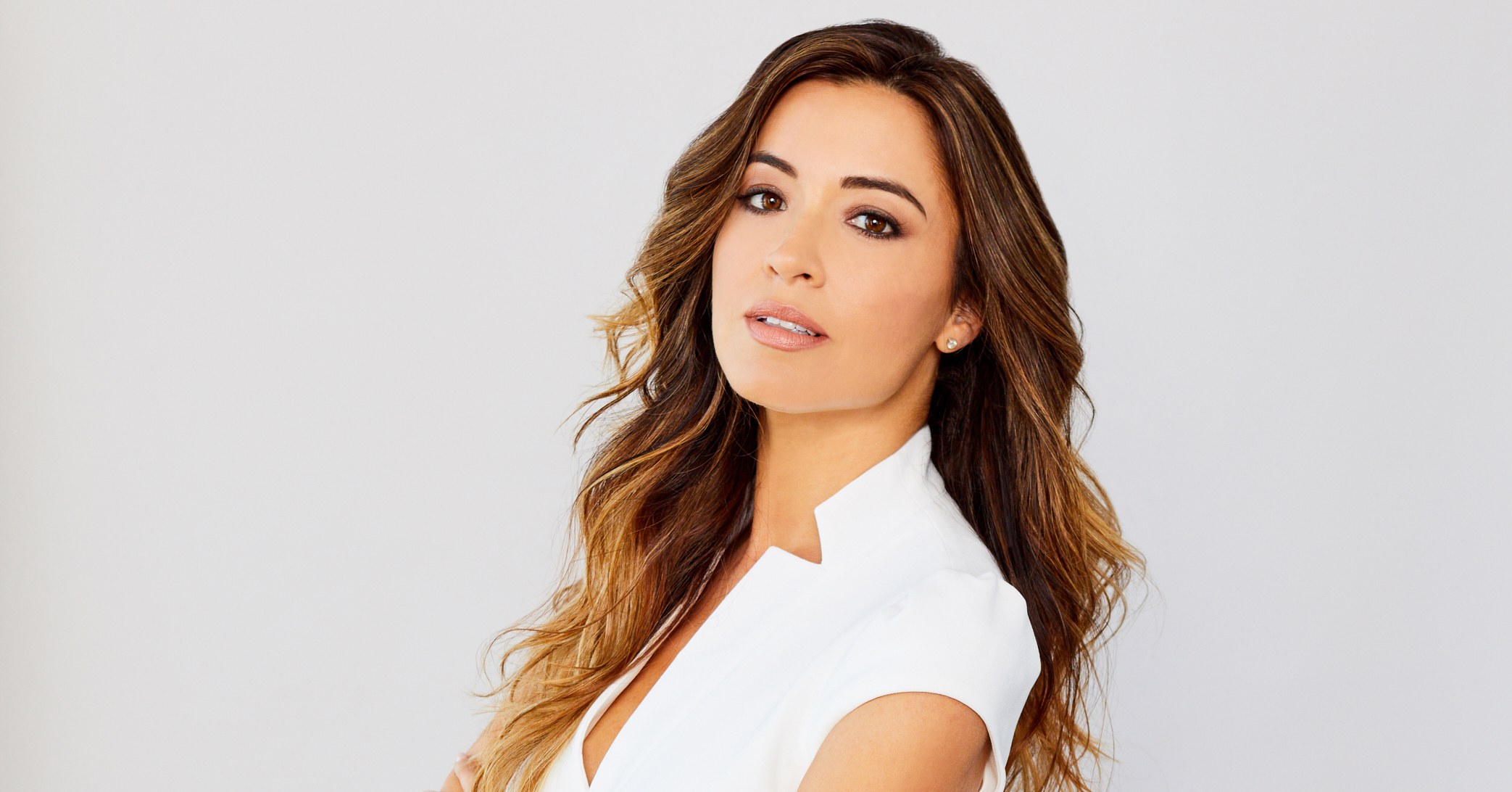How I Prepared Myself to Have a Preventative Double Mastectomy

Alejandra Campoverdi is the former Director of Hispanic Media for the Obama Administration, a previous congressional candidate for California’s 34th District, founder of the Well Woman Coalition, registered holistic cancer specialist, and a BRCA-2 previvor. Just this month, she underwent a preventative double mastectomy to remove her healthy breasts. This is her story, as told to Glamour‘s Macaela Mackenzie.
My breasts have been getting a lot of attention lately. To be clear, this is a totally new and strange thing for me. I was flat-chested until I was in my early twenties and after my breasts finally did show up, they were never really a topic of conversation. So, what’s changed? For the past few years, I’ve been planning to have a preventative double mastectomy. Last week, I had my perfectly healthy breasts removed.
I have never known a time in my family without the presence of breast cancer. When I was a baby, my great-grandmother died of metastatic breast cancer (breast cancer that has spread beyond the breast to other organs in the body). When I was 16, my abuelita, who was like a second mother to me, died of metastatic breast cancer. In my early 20s, my mother developed breast cancer, though luckily, she survived. Since then, two of my aunts have also been diagnosed with the deadly disease. (This year alone, it’s estimated that over 40,000 women will die from breast cancer.)
With each diagnosis, it became clear that there was something hereditary going on. But it wasn’t until recently, with genetic tests for risk factors like mutations in the BRCA1 and BRCA2 genes becoming more accessible, I realized I might actually be able to do something about it. So in 2013, I decided to find out for sure—I tested positive for a BRCA2 gene mutation, meaning I had an 85 percent chance of developing breast cancer in my lifetime. (For women without BCRA1 or BCRA2 gene mutations, the risk of developing breast cancer is less than 4 percent.)
Now I have battle scars—almost like a badge of honor. I actually think they’re kind of beautiful.
When I found out, I didn’t tell anyone, not even my mom, for months. I wanted to make a decision about what to do on my own. I was the one that would have to deal with the ramifications for the rest of my life—I didn’t want anyone else’s fears or judgments getting in my head.
In the end, I listened to my gut: The chance to reduce my risk of developing breast cancer from 85 percent to under 4 percent was a no-brainer. I knew I would have a preventative double mastectomy—it was just a question of when.
Since 2013, the surgery has never been far from my mind. To prepare myself, I started a relationship with a breast surgeon a few years ago. I wanted to make sure that I knew the person, and that they knew me—and my breasts—very, very well. My surgeon told me I should aim to have my mastectomy when I was 10 years younger than my mom had been when she was diagnosed with breast cancer. So, we set a date for 2018.
In the meantime, I had to keep up with a grueling yearly regimen of screening tests—breast MRIs, mammograms, ultrasounds, monthly self-exams, and blood tests. Thankfully, I was able to get insurance coverage for the care I needed but navigating the convoluted system made the political firestorm around healthcare—especially for women and people of color—personal.
When my mother was fighting her own battle with breast cancer, I became her primary caregiver, chasing down HMO doctors and persuading them to prioritize her care. She felt like a number. That experience was one of the main reasons that I went to work unpaid on then-Senator Obama’s campaign in 2008. It is why one of my proudest moments serving as a White House aide to President Obama was the passage of the Affordable Care Act and why its potential repeal in 2017 led me to run for Congress. Unfortunately, when it comes to debates over the quality, access, and affordability of medical care, women are standing directly in the crossfire.
Breast cancer has been present in my family since the day I was born, in one way or another. Coupled with the challenges that women of color face when it comes to getting screenings and medical care, that’s why I’ve founded the Well Woman Coalition, a resource to help empower women to have agency over their health by arming ourselves with information and making intentional, empowered choices. There is no right or wrong answer—whether you choose increased screening or to have a preventive surgery, that’s very personal—being informed and engaged with your health is the important piece.
Six years after I first found out about my BCRA 2 mutation, I finally had my preventative double mastectomy—a life altering surgery to remove my breasts that were still healthy—earlier this month.
Now I have battle scars—almost like a badge of honor. Personally, I actually think they’re kind of beautiful. After seeing so many women in my family go through tough battles with cancer and some of them lose their lives, my scars are a symbol to me of empowerment and progress and choice.
Follow Alejandra’s journey on Instagram and at Well Women Coalition.
